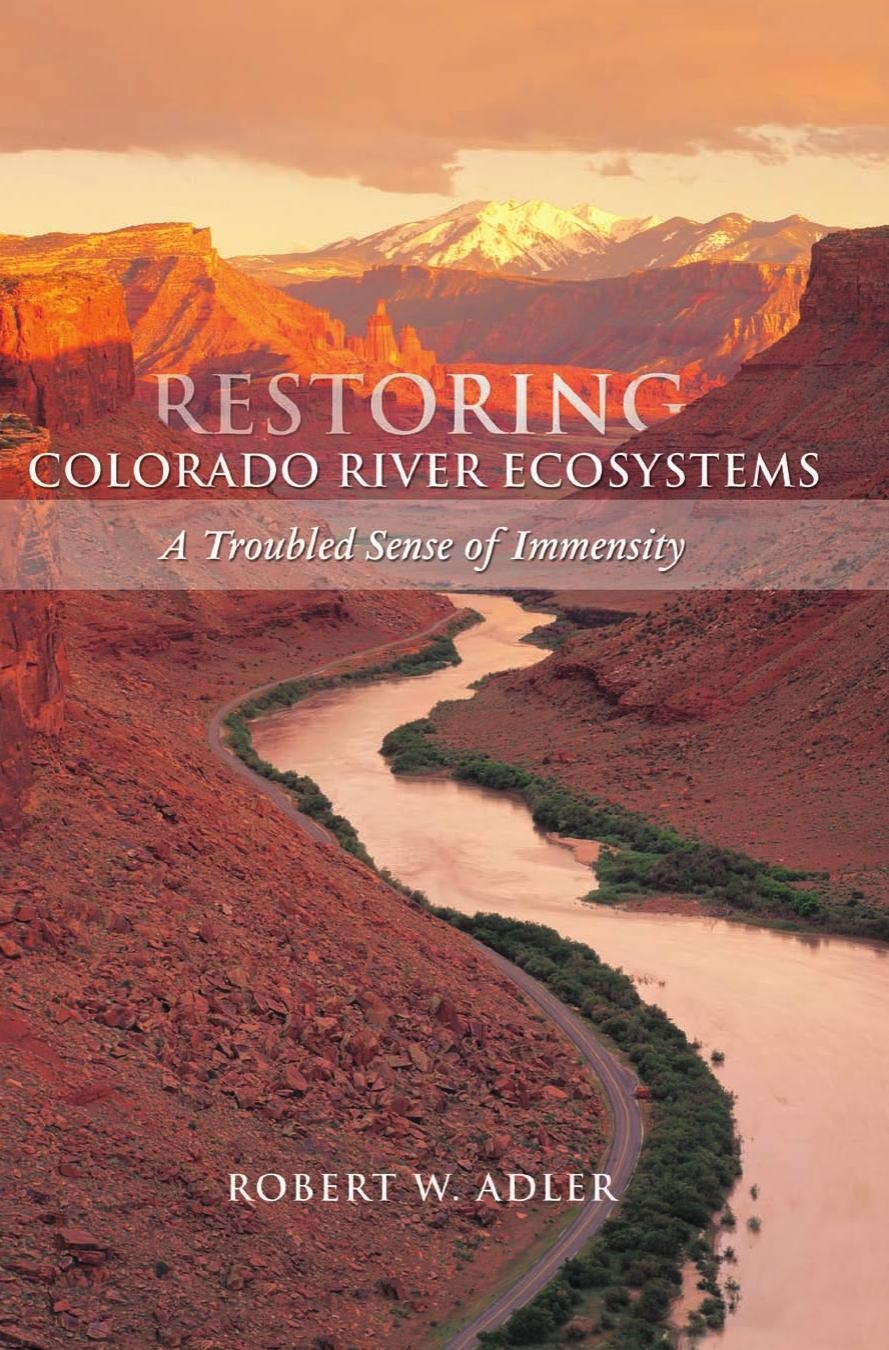Restoring Colorado River Ecosystems: A Troubled Sense of Immensity by Robert W. Adler

Author:Robert W. Adler [Adler, Robert W.]
Language: eng
Format: epub, pdf
Tags: science, General, Life Sciences, Ecology, political science, Public Policy, Environmental Policy, nature
ISBN: 9781597267786
Google: 22e6JGExJdYC
Publisher: Island Press
Published: 2012-06-22T23:43:00.992780+00:00
Making Restoration Choices Democratically
Carl Sandburg wrote: âEvery man sees himself in the Grand Canyon.â50 But every person sees something different in him or herself, and all want their personal values to be reflected in a restored canyon (and in other natural places), regardless of how incompatible those conflicting values may be.
Congress contributed to this dilemma by passing the loop of conflicting mandates in the statutes authorizing the Colorado River dams, in later environmental laws such as NEPA and the ESA, and in the GCPA. Perhaps the world was a bit simpler in 1956 and 1968, when Congress established a relatively clear hierarchy of uses that roughly paralleled the priorities set in the Law of the Riverâwater first, power second, and environment at best third. By 1992, it was clear that all of those uses could not necessarily be met while still complying with newer laws designed to restore and protect the natural environment. Unfortunately, Congress was either unwilling or unable to make clear choices. Instead, it delegated those value decisions to the secretary of interior. The secretaryâs decisions, in turn, were to be guided by a collaborative process designed to bring together representatives of the various âstakeholderâ groups whose uses and interests are affected by how we manage the dam and river.51 In his 1996 Record of Decision (ROD) on the EIS on Glen Canyon Dam operations, Secretary Babbitt established the Glen Canyon Dam Adaptive Management Program (GCDAMP) to advise him and future secretaries on program implementation. The program includes a twenty-fiveâperson committee known as the Adaptive Management Work Group (AMWG), consisting of representatives of the basin states, federal and state resource agencies, tribes, environmental groups, recreation interests, and power users.52
Having participated in several such processes, I was interested to observe the dynamics at an AMWG meeting in Phoenix in spring 2002. I wanted to see how well the AMWG functioned at making the kinds of difficult choices facing the Grand Canyon restoration program, so I attended several of the AMWG meetings over a two-year period. This meeting began with a tribute to a recently resigned chair, who was experiencing serious health problems. The committee reaction, which included a standing ovation, shows how well he was respected by all of the stakeholders. One benefit of collaborative efforts is to break down the personal barriers that often characterize highly polarized conflicts, in which the people on the other side of the debate are stereotyped, caricatured, or even demonized. That does not always mean that the underlying conflict is resolved, as was true in this meeting, but the parties at least discuss the issues on the merits rather than hiding in political trenches and firing off rhetorical bombs.
At this particular meeting, improved interpersonal relationships did not necessarily translate to agreement on the issues. Members of an ad hoc subcommittee had been conferring two or three times a month since 1999 (roughly three years) to develop a strategic plan with which to guide the AMWGâs recommendations. The facilitator asked for a motion to
Download
Restoring Colorado River Ecosystems: A Troubled Sense of Immensity by Robert W. Adler.pdf
This site does not store any files on its server. We only index and link to content provided by other sites. Please contact the content providers to delete copyright contents if any and email us, we'll remove relevant links or contents immediately.
| Automotive | Engineering |
| Transportation |
Machine Learning at Scale with H2O by Gregory Keys | David Whiting(4289)
Never by Ken Follett(3929)
Urban Outlaw by Magnus Walker(3388)
OPNsense Beginner to Professional by Julio Cesar Bueno de Camargo(3275)
Sapiens and Homo Deus by Yuval Noah Harari(3057)
Will by Will Smith(2899)
A Short History of Nearly Everything by Bryson Bill(2681)
Hooked: A Dark, Contemporary Romance (Never After Series) by Emily McIntire(2538)
Rationality by Steven Pinker(2346)
Borders by unknow(2300)
The Becoming by Nora Roberts(2183)
Holy Bible (NIV) by Zondervan(2109)
HBR's 10 Must Reads 2022 by Harvard Business Review(1832)
A Short History of War by Jeremy Black(1831)
The One Percenter Encyclopedia by Bill Hayes(1821)
Freedom by Sonny Barger(1791)
Go Tell the Bees That I Am Gone by Diana Gabaldon(1746)
Five Ways to Fall by K.A. Tucker(1732)
Girls Auto Clinic Glove Box Guide by Patrice Banks(1719)
